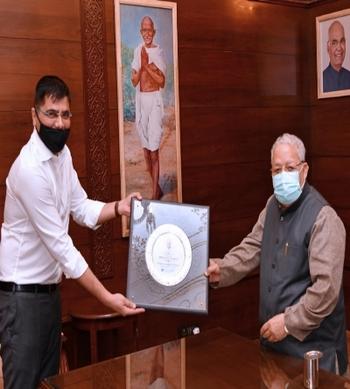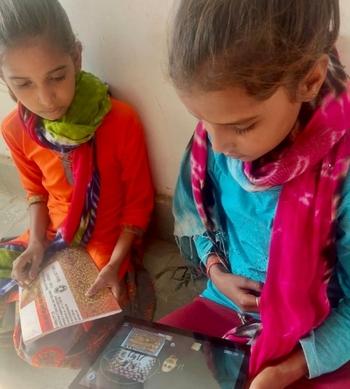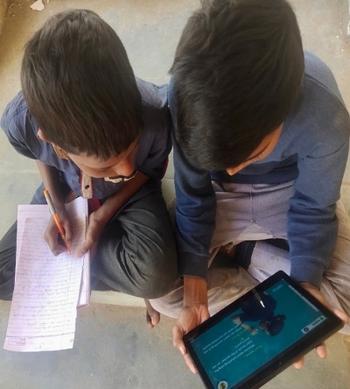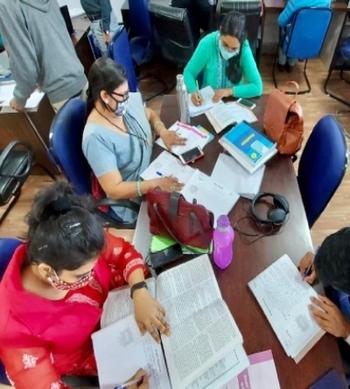CBSE Syllabus Class 12 Political Science 2022-23
CBSE Class 12 Political Science Syllabus 2022-2023 contains information on the course content that must be prepared throughout the current academic session. It describes the major features of contemporary world politics as well as Indian politics since independence. The curriculum includes unit-wise weightage, which will help you focus on the relevant topics. Students must review the entire course and plan their study schedule accordingly. The syllabus also includes recommendations for project work (20 points).
Max. Marks: 80
Part A: Contemporary World Politics
|
Units |
Contents |
Marks |
|
1 |
The End of Bipolarity |
8 |
|
2 |
New Centres of Power |
12 |
|
3 |
Contemporary South Asia |
|
|
4 |
United Nations and its Organizations |
10 |
|
5 |
Security in Contemporary World |
|
|
6 |
Environment and Natural Resources |
10 |
|
7 |
Globalization |
|
|
Total |
40 |
Part B: Politics in India since Independence
|
Units |
Contents |
Marks |
|
1 |
Challenges of Nation-Building |
08 |
|
2 |
Planned Development |
|
|
3 |
India’s Foreign Policy |
08 |
|
4 |
Parties and Party System in India |
12 |
|
5 |
Democratic Resurgence |
|
|
6 |
Regional Aspirations |
12 |
|
7 |
Indian Politics: Recent Trends and Development |
|
|
Total |
40
|
Skip to
COURSE CONTENTS
Part A: Contemporary World Politics - 22 Periods
1.The End of Bipolarity
Disintegration of Soviet Union, Unipolar World, Middle East Crisis – Afghanistan, Gulf War, Democratic Politics and Democratization – CIS and the 21st Century (Arab Spring).
2 New Centres of Power Organizations - 18 Periods
European Union, ASEAN, SAARC, BRICS. Nations: Russia, China, Israel, India, Japan and South Korea.
3 Contemporary South Asia - 18 Periods
Conflicts and efforts for Peace Democratization in South Asia: Pakistan, Nepal, Bangladesh, Sri Lanka, Maldives.
4 United Nations and its Organizations - 10 Periods
Principal Organs, Key Agencies: UNESCO, UNICEF, WHO, ILO, Security Council and the Need for its Expansion.
5 Security in Contemporary World - 12 Periods
Security: Meaning and Type; Terrorism.
6 Environment and Natural Resources - 12 Periods
Environmental Movements, Global Warming and Climate Change, Conservation of Natural Resources.
7 Globalization Globalization - 12 Periods
Meaning, Manifestation and Debates.
Part B: Politics in India since Independence
1 Challenges of Nation-Building - 16 Periods
Nation and Nation Building. Sardar Vallabh Bhai Patel and Integration of States. Nehru’s approach to nation-building; Legacy of partition: challenge of ‘refugee’ Resettlement, the Kashmir problem. Political conflicts over language. Linguistic Organisation of States.
2 Planned Development - 08 Periods
Changing nature of India’s Economic Development Planning Commission and Five Year Plans, National Development Council, NITI Aayog.
3 India’s Foreign Policy - 20 Periods
Principles of Foreign Policy; India’s Changing Relations with Other Nations: US, Russia, China, Israel; India’s Relations with its Neighbours: Pakistan, Bangladesh, Bhutan, Nepal, Sri Lanka and Myanmar; India’s Nuclear Programme.
4 Parties and Party System in India
One Party Dominance, Bi-Party System, Multi-Party Coalition System.
5 Democratic Resurgence - 30 Periods
for both 4 & 5 Jaya Prakash Narayan and Total Revolution, Ram Manohar Lohia and Socialism, Pandit Deendayal Upadhyaya and Integral Humanism, National Emergency, Democratic Upsurges – Participation of the Adults, Backwards and Youth.
6 Regional Aspirations
Rise of regional parties. Punjab Crisis. The Kashmir Issue, Movements for Autonomy.
7 Indian Politics: Recent Trends and Development - 36 Periods
for both 6 & 7 Era of Coalitions, National Front, United Front, United Progressive Alliance (UPA) – I & II, National Democratic Alliance (NDA) I, II, III & IV, Issues of Development and Governance.
Prescribed Books: 1. Contemporary World Politics, Class XII, Published by NCERT 2. Politics in India since Independence, Class XII, Published by NCERT 3. Reference Material available with this document.
Conclusion
Overall, the study of political science in class 12th CBSE syllabus is crucial in enabling students to understand the complexities of the political world, develop critical thinking and analytical skills, and engage in informed and responsible citizenship.
FAQs
Q1. What are the units included in Political Science Class 12th CBSE Syllabus?
A: The CBSE Class 12th Political Science Syllabus is divided into two parts: Part A - Contemporary World Politics and Part B - Politics in India since Independence.
Q2: What is covered in Part B - Politics in India since Independence?
A: Part B covers topics such as Challenges of Nation Building, Era of One-Party Dominance, Politics of Planned Development, India's External Relations, Challenges to the Congress System, Crisis of the Democratic Order, Rise of Popular Movements, Regional Aspirations, Recent Developments in Indian Politics.
Q3: What is the duration of the Political Science Class 12th CBSE board exam?.
A: The Political Science board exam for Class 12th is for 3 hours
Q4: How many questions are there in the Political Science Class 12th CBSE board exam?
A: The question paper for Political Science Class 12th CBSE board exam consists of 26 questions divided into two parts - A and B.
To download the full syllabus and check the details of project work for the academic year 2022-23, click on the following link: CBSE Class 12 Political Science Syllabus 2022-2023: Download in PDF

MissionGyan Team
We aim to eradicate the education gap and serve equal and free education to all with the help of skilled and expert volunteers and teachers.





